Colossus: The Forbin Project / Forbin Project, The (1970)
“This is the voice of world control. I bring you peace.”
|
Synopsis: |
|
Genres, Themes, Actors, and Directors:
Response to Peary’s Review: Indeed, a deeply disturbing element of the smart screenplay is how smug and bemused the humans remain for far too long after it’s clear that their creation has gotten the better of them. They continually — stupidly — assume that by using their own intelligence they can outsmart a computer they’ve designed to be literally impenetrable. In his review, Peary makes numerous comparisons between this film and 2001, noting that in both stories, “man must regain his human nature before challenging the computer. Whereas Keir Dullea’s 2001 character, Bowman, becomes emotional for the first time, Forbin distinguishes himself from the machine by having regular sex with his female assistant (Susan Clark) in order to pass on ideas about rebellion.” Peary notes that “as we see, man becomes a human being only when he fights for his survival and the preservation of personal liberties — the freedom to do even the most inconsequential things by choice and by using his own brain and hand,” though as the film cautions, “by then it may be too late.” What I appreciate most about this thriller is how quickly it moves; the only time we have a chance to breathe (appropriately so) is when Dr. Forbin and Dr. Markham have negotiated their private (unmonitored) sex time together. Otherwise, we’re taken along on the relentless ride of two super-smart computers — which, of course, would be even more “intelligent” at this point, decades later — driven purely by their own (uber-rational) logic, thus leading to several shockingly abrupt moments of brutality. Be forewarned that this isn’t a feel-good film by a long stretch, though it remains scarily compelling. Redeeming Qualities and Moments:
Must See? Categories
Links: |
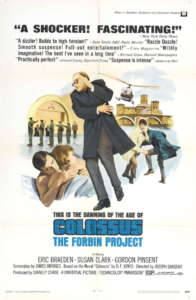
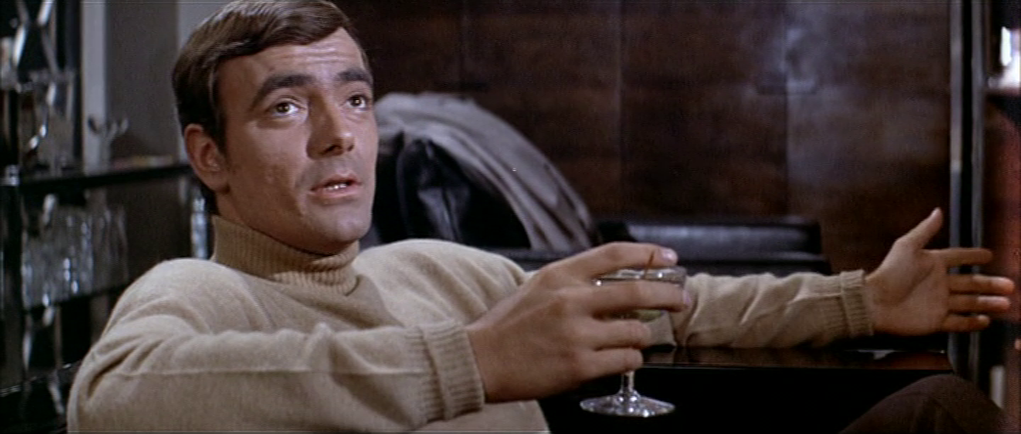


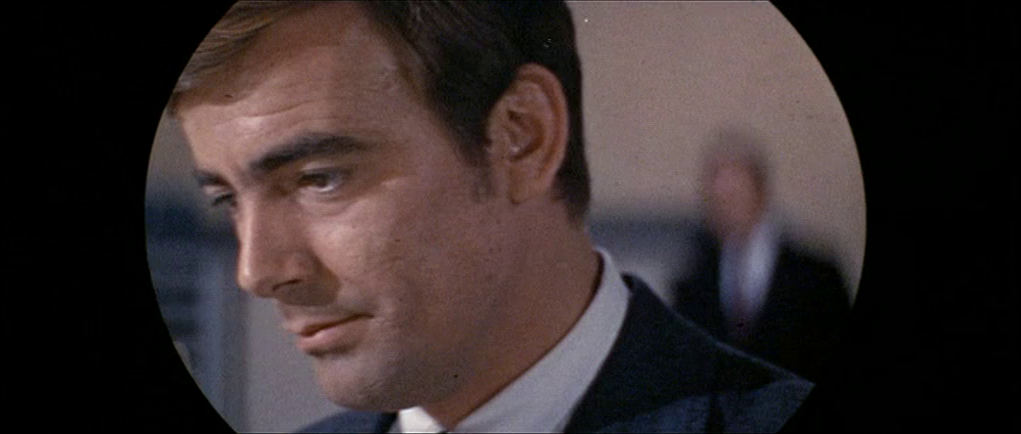
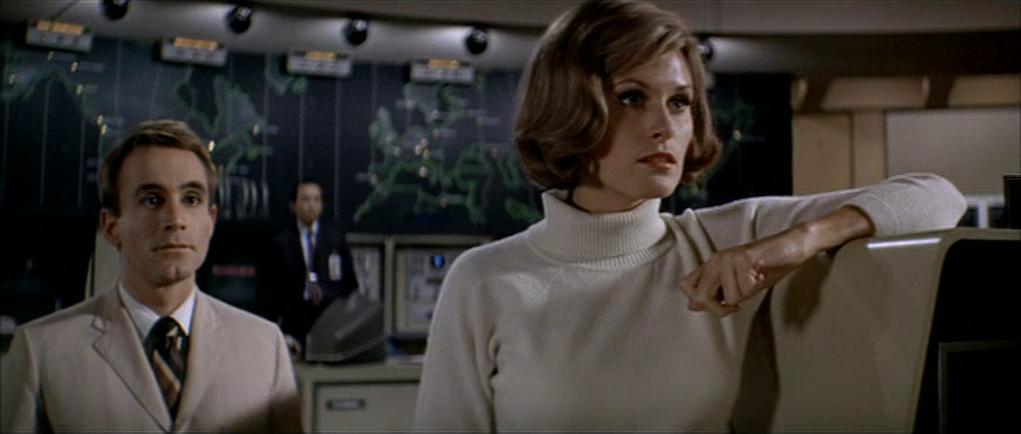
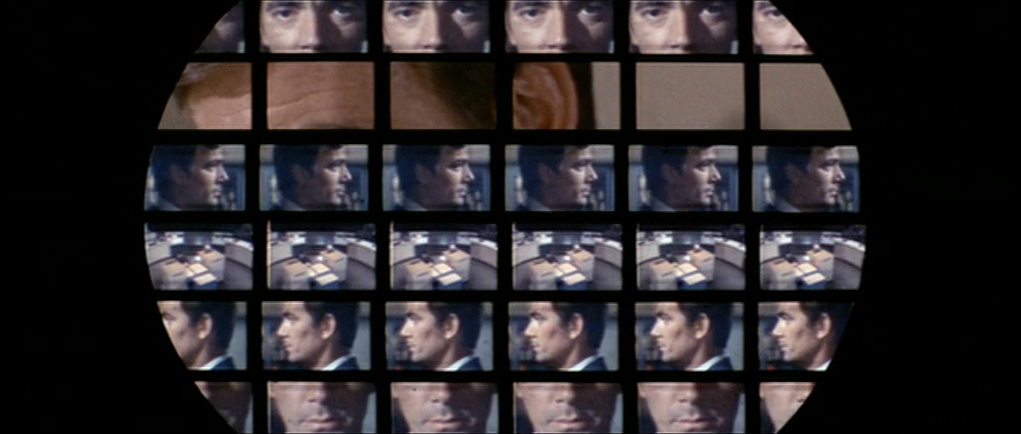

2 thoughts on “Colossus: The Forbin Project / Forbin Project, The (1970)”
First viewing (3/29/20). Agreed; must-see, as an effective sci-fi flick. As per my post in ‘Revival House of Camp & Cult’ (fb):
“Obey me and live – or disobey me and die.”
‘Colossus: The Forbin Project’:
POSSIBLE SPOILERS AHEAD…
Based on a screenplay by James Bridges (who would later go on to write / direct ‘The Paper Chase’, ‘The China Syndrome’, ‘Mike’s Murder’, etc.). I hadn’t seen this before – and I spent most of the time ping-ponging between thinking ‘What could possibly be the point of all this?’ and periodically simply suspending more disbelief.
What starts out as a demonstration of a very advanced, computer-operated defense system in the US soon turns into a systematic attempt by the computer to partner with a similar system (which the computer discovers in the USSR) for the purpose of controlling the world… for its own good and the good of mankind. But would mankind – to a person – want to take orders (about everything) from a computer?
The ultimate point becomes that man wouldn’t have a choice. But the more I grasped the computer’s logic, I found myself thinking, ‘Y’know, this might not be so bad after all. It’s not like people would be giving up much, according to the demands.’
It would be like God actually being physically present – and more inter-active on a daily basis, instead of ‘existing’ somewhere ‘beyond the cosmos’. What an odd idea – but perhaps not all that impractical, considering what mankind has already done (and undone).
⭐️⭐️⭐️1/2
Based on the novel, The Forbin Project (1966) by Dennis Feltham Jones, this has to be one of the most influential scifi stories written with it’s phobia of computer control being a catalyst for the likes of 2001: A Space Odyssey (1968) and many episodes of Star Trek (1966-69); those being just the beginning of the stories that followed.
A superb, rather unsung film largely forgotten these days but at it’s centre are the excellent performances of Braeden and Susan Clark as his number two. The scenes where they trick Colossus into believing that they’re intimate in order to pass information from the heavily surveiled Forbin to his team provide the film with it’s human centre and are the reason the story works so well.
Highly recommended and must see for FFs.